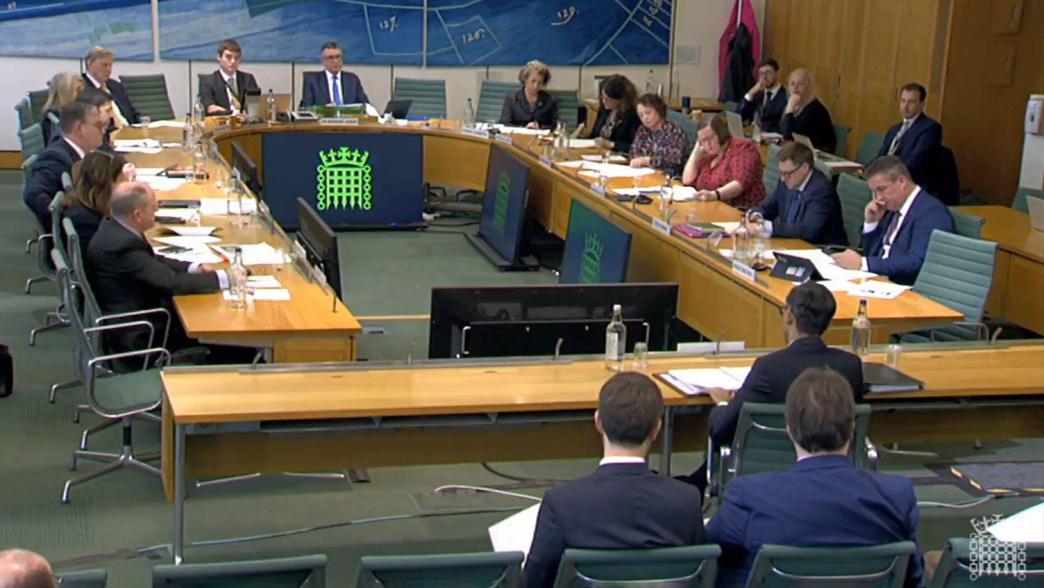The Liaison Committee
What roles does the Liaison Committee play in holding the prime minister to account?

What is the Liaison Committee?
The Liaison Committee is the ‘super committee’ which oversees the select committee system in the House of Commons. It was first established in 1980 following the 1979 reforms which led to the creation of the modern departmental select committee system.
What is the role of the Liaison Committee?
The Liaison Committee's most well-known role is to take oral evidence – in recent years three times annually for 90 minutes at a time – from the prime minister, on ‘matters of public policy’. In practice it is the only select committee to which the prime minister gives evidence, except in unusual circumstances (such as Boris Johnson’s 2023 evidence to the Privileges Committee). This prime ministerial-scrutiny role dates from 2002, when Tony Blair first broke with the long-standing tradition of prime ministers refusing to give evidence to parliamentary committees.
The Liaison Committee also has several other roles, set out in Standing Order No. 145. These include general oversight of the select committee system – a role which, in recent decades, has led to reforms such as the introduction of elections for select committee chairs. It makes recommendations about which select committee reports should be debated in the chamber, agrees which departmental estimates (budgets of government departments) should be debated and decides how the budget available for select committee inquiry-related travel should be allocated.
Who are the members of the Liaison Committee?
The Liaison Committee is, by convention, made up of the chairs of all the other Commons select committees – of whom there are currently 32. This includes the so-called ‘domestic’ committees which deal with internal matters relating to the running of the House of Commons (such as Standards and Procedure) as well as the better known departmental and cross-cutting policy committees. However, there is nothing to stop the Commons appointing members to the Liaison Committee who do not chair another committee – as was demonstrated in this parliament when the government nominated Sir Bernard Jenkin to chair the committee, which was agreed to by the House.
How are questions to the prime minister allocated?
Normally the Liaison Committee decides on a limited number of three or four topical issues on which to question the prime minister at each session. Because an evidence session with 33 committee members would be likely to be superficial and dysfunctional – a subset of the full membership attends and a few chairs conduct in depth questioning on each topic. Over the course of the three annual evidence sessions an effort is made to ensure that the interests of all the different committees are addressed at some point, while ensuring that questioning remains topical.
Does the Liaison Committee have any impact?
Unlike the confrontational and party-focused PMQs, a Liaison Committee appearance is a better format for scrutinising – at length and in detail – a prime minister, who must spend time preparing to answer questions on a range of questions. At his last appearance in July, for example, Rishi Sunak faced questions on Boris Johnson's appearance before the Privileges Committee, the government's Rwanda asylum plan, and the cost of living crisis. However, unlike PMQs, a Liaison Committee appearance is not going to impact on the mood of a prime minister's party nor take place in front of a packed public and press galleries.
Appearing before the Liaison Committee in 2005, Tony Blair was asked to reflect on the experience. “Prime minister's questions is … is very, very adversarial and it is almost like a debating joust every week with obviously the focus particularly on the Prime Minister and the Leader of the Opposition and the Leader of the Liberal Democrats,” the former prime minister answered. “I think with this way of doing things, you are able to get what is undoubtedly a series of tough questions, but be able to discuss issues at greater length and with the right degree of formality, but, nonetheless, also I think doing it in a way that I hope exposes some of the issues to greater public understanding”.
- Political party
- Conservative
- Position
- Prime minister
- Administration
- Sunak government
- Legislature
- House of Commons
- Public figures
- Rishi Sunak
- Publisher
- Institute for Government